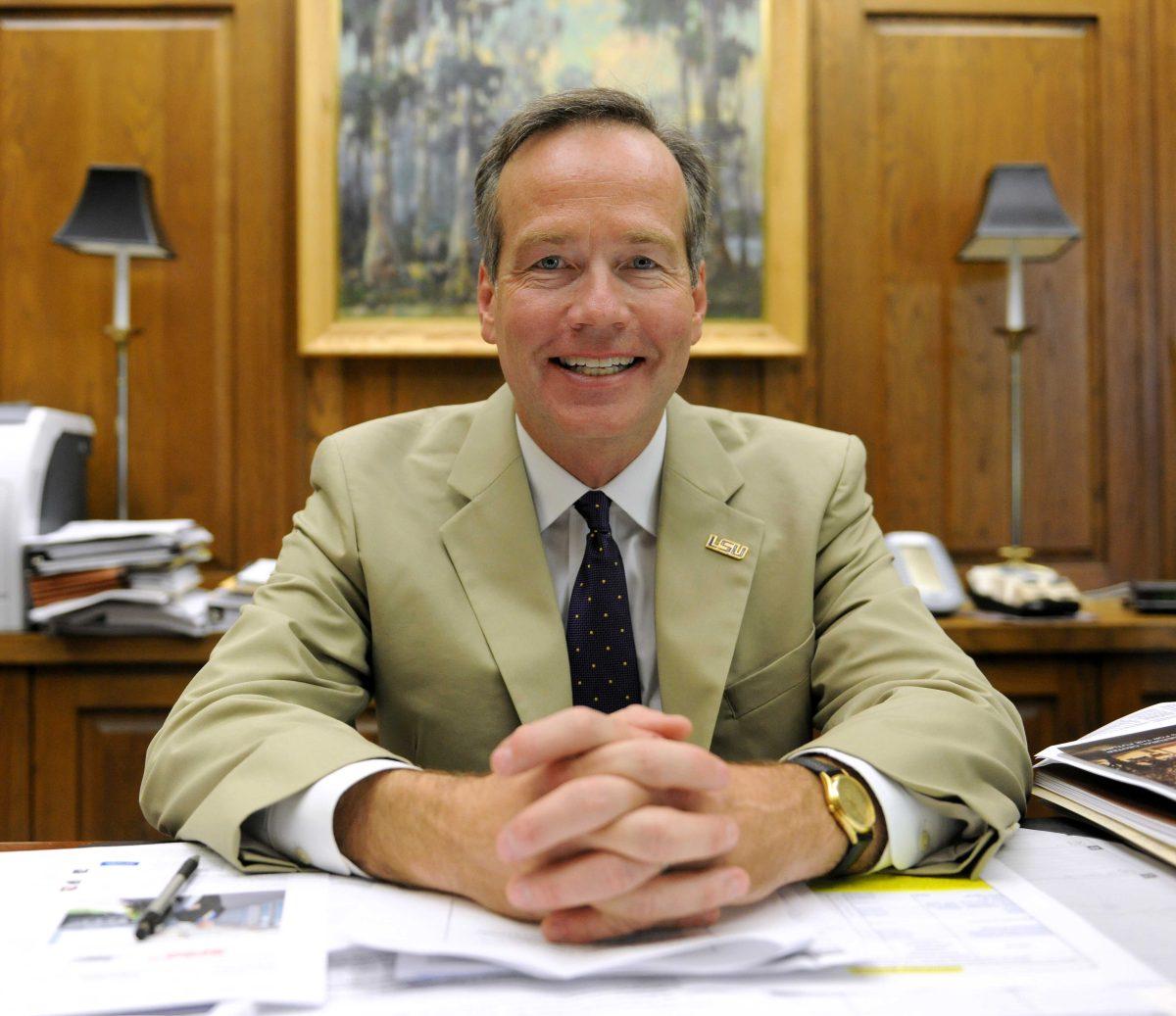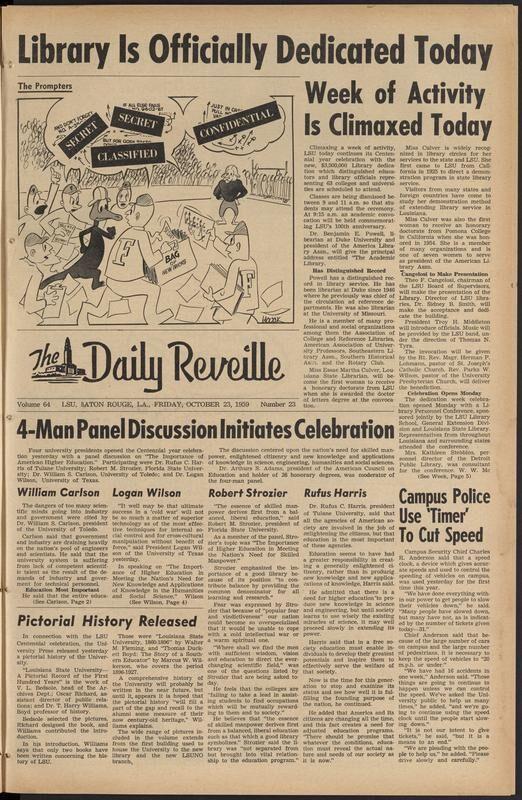Incoming students may find a new resource available for information about the value of a University education.
During his college affordability bus tour in August, President Barack Obama announced a plan to develop a federal ratings system based on a comprehensive inventory of higher education data — an initiative LSU President F. King Alexander said he adamantly supports.
Alexander said the Postsecondary Institution Ratings System would be an expansion of the U.S. Department of Education’s College Affordability and Transparency Center College Scorecards, which displays data like a college or university’s graduation rate and loan default rate.
College rankings usually are made available by magazines like U.S. News & World Report, but Alexander said the ratings system used by those publications fails to include valuable information like post-graduation employment and average student debt.
“I’m firmly behind the federal government doing a rating system that gets parents and students and taxpayers better information, a lot better than those stupid magazines do,” Alexander said.
While information like student loan default rates and post-graduation earnings is known, Alexander said many of the high-ranking institutions do not want the information widely dispersed.
“A lot of these schools are so adamant about not making it available that we’ve had to get it written into previous reauthorization acts that they have to cough up this data,” Alexander said.
Wealthier institutions don’t want this information shared because it will more effectively show whether a student is really getting the most out of an education costing more than $50,000, Alexander said.
He said these institutions have 11 percent of the students, 30 percent of the Federal Pell Grant money and 48 percent of all student loan defaults.
Prior to 2007, Alexander said much of the information included in the College Scorecard was not available. Many wealthy institutions prefer college ratings remain under the current system used by publications like U.S. News & World Report.
“You rank higher by turning away more students, so 20 percent of the score is based on selectivity. So the more students you turn away, the higher they rank,” Alexander said. “About 48 percent of the score is based on how much money you have, so how much money you’re able to spend on the fewest amount of students.”
Kinesiology sophomore Layne Becnel said if colleges and universities have the data, they should make it available as a resource to parents and students.
“I think that it’s something that people would really look at,” Becnel said. “I mean, that’s why we’re going to college.”
University students can benefit from PIRS because it will display the true value of their education, Alexander said.
Since the last recession, he said parents ask more questions about the value of higher education.
“When I’m at orientation, and I’m speaking to a room full of a 1,000 to 1,200 parents, and I tell them where our institution ranks in starting salaries and mid-career earnings and how much lower the debt is upon graduation, they eat this stuff up,” Alexander said. “They really want to know that, and they haven’t been told that, and they can’t find it anywhere.”
Though psychology sophomore Caroline Stradley said she did not consider college rankings in her decision to attend the University, she does believe having a federal ratings system will give incoming students valuable information.
“I think it’s kind of interesting,” Stradley said. “It could be helpful for people that are really looking for, like, a program that’s better than others.”
Alexander said much of the opposition to PIRS comes from those institutions who don’t want data like average student debt and loan default rates widely dispersed.
“I’ve got a lot of opposition out there, and it’s coming from, as I point out in D.C., it’s coming from 80 percent of the universities that only represent 20 percent of the students,” Alexander said. “It’s all the high-cost, private, full-profits and not-for-profit institutions that hate this idea.”
The other half of the opposition to PIRS comes from those who don’t want to see the federal government in charge of a higher education ratings system, Alexander said.
“I don’t care who does it,” Alexander said. “I just want somebody doing it and not U.S. News and these other magazines that claim to be legitimately rating institutions.”
LSU President F. King Alexander backs federal ratings to evaluate affordability
January 21, 2015
More to Discover










